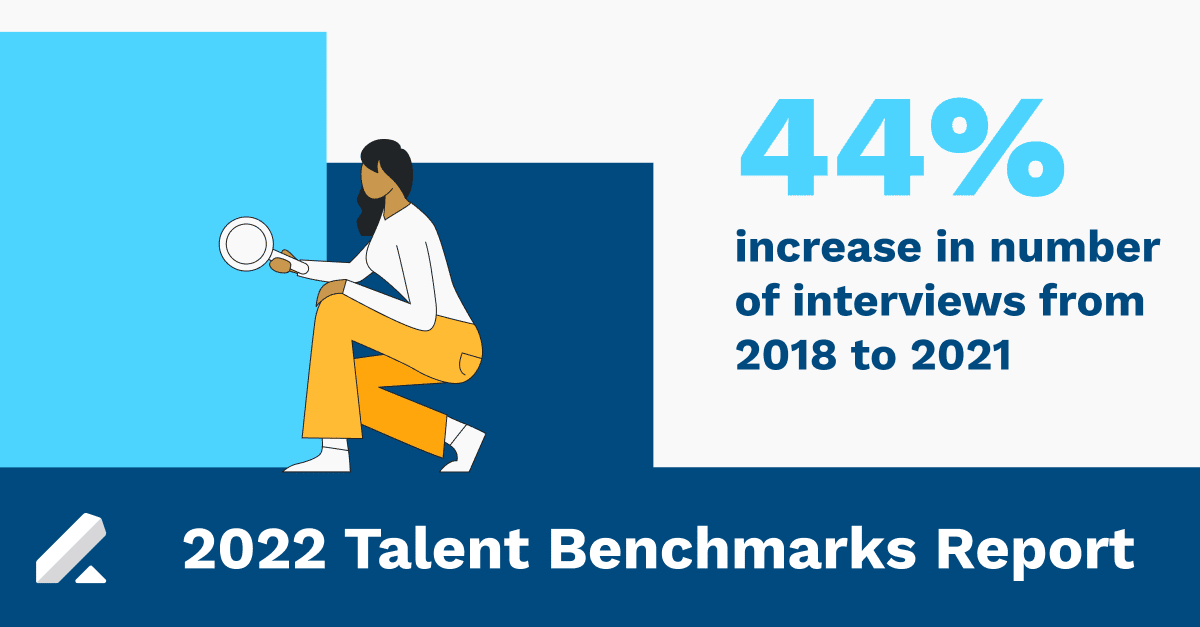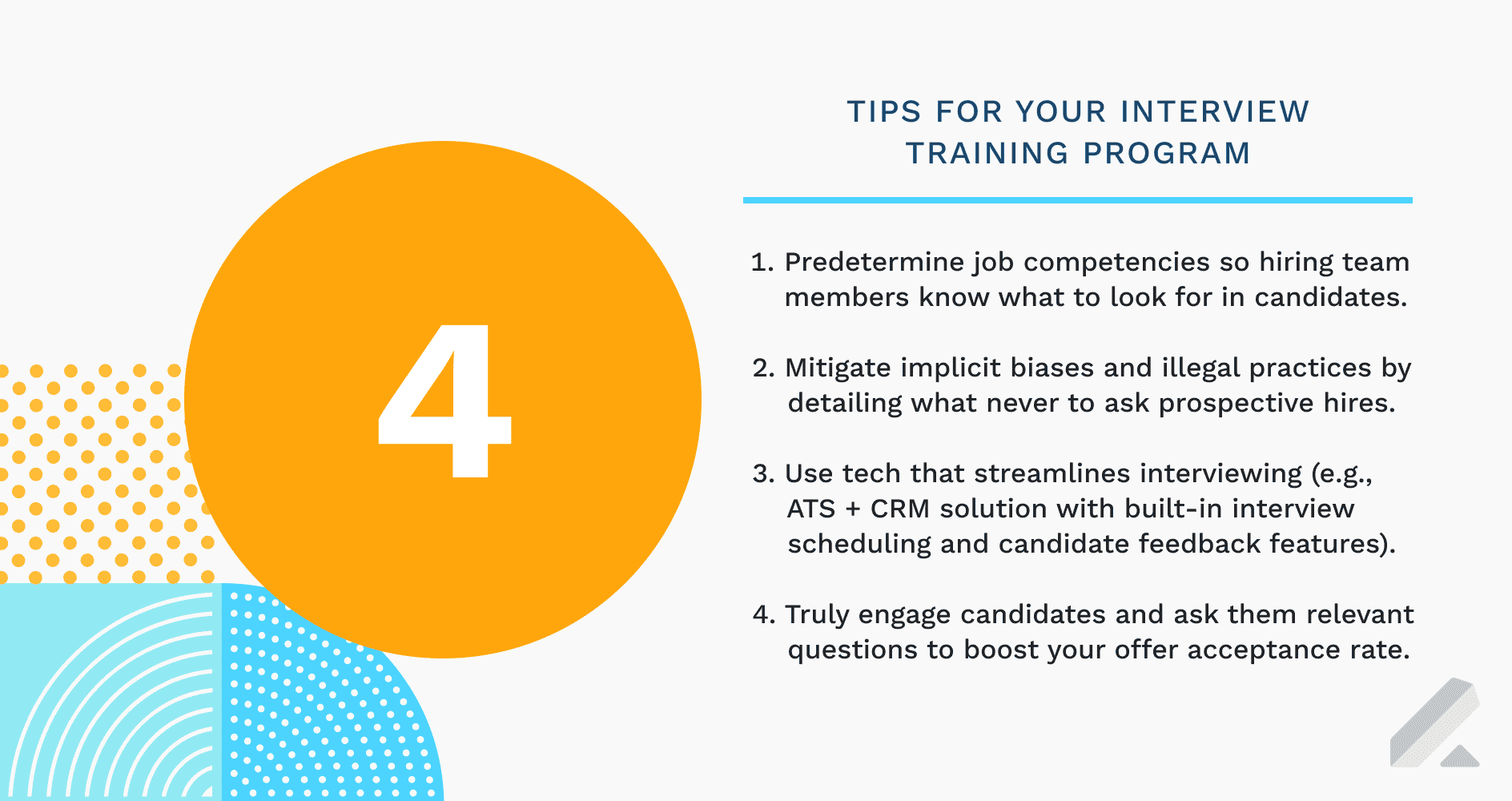Interviews are a necessary part of your hiring process. And yet, determining whether a candidate is right for a role can be challenging. Can a one-hour interview truly tell you everything you need to know before hiring a new team member?
Which questions hiring team members ask and how they assess whether a candidate is the right fit ultimately informs who gets passed on and who gets an offer. But the structure of this process matters just as much as the Qs asked and post-interview evaluation.
Ensuring everyone involved in the hiring process is aligned is critical to running successful interview processes and, at the end of the day, employing the right individuals and providing a stellar experience to each candidate engaged.
This is where structured interviews can help.
What is a structured interview?
A structured interview is a method of assessment that measures how competent a candidate is for a role by asking each prospect one interviews the same set of questions and comparing them against the same criteria.
- This approach require a hiring team to develop a clearly defined purpose for each interview, along with a specific set of structured interview questions for each interviewer to ask.
Moreover, it includes a rubric or scorecard of some kind that helps interview panelists assess answers to each question. This means all candidates are asked the same predetermined questions (and in the same order) and their responses are evaluated using the same scale.

Why are structured interviews better?
Conducting job interviews can seem pretty straightforward:
- Candidates come into your talent pipeline.
- You choose the ones you’d like to interview.
- You ask them a series of relevant questions.
- Based on their responses and your hiring team’s collective feedback, you move forward with the candidate you think is the best fit for the role.
Upon second glance, however, you’ll find that a brief interview and a “gut feeling” aren’t enough to make the most effective hiring decisions — especially when other stakeholders or influencers are involved.
Rather, you need an organized approach to speaking with prospective hires. Fail yo implement such a process, and you could very well end up employing the wrong person.
Hiring the wrong candidate can be costly. Studies have shown that, on average, a bad hire can cost a company upwards of $15,000. Meanwhile, 74% of managers say they’ve hired the wrong person for a position at one time or another.
This makes having a structured interview process crucial.
The advantages of using structured interviews
Many recruiters consider structured interviews to be more effective, as they’re based on a clearly defined role and its core objectives: a hiring team uses a rubric and deliberate set of questions that foster data-driven hiring decisions.
Let’s dive deeper into the specific, key advantages of structured interviews:
- Better predict job performance: As we mentioned above, studies have shown that structured interviews can help you better predict a candidate’s job performance.
- Eliminate confirmation bias: All candidates are asked the same open-ended questions and assessed with the same rubric. This ensures your hiring is equitable and fair.
- Data-driven vs. emotional hiring: As candidates are assessed based on standardized criteria rather than ‘feeling’, hiring teams can make more data-driven hiring decisions.
- Optimize interview time: Having a structured interview framework in place can help managers and stakeholders optimize the time they have with each candidate.
- Understanding of interpersonal skills: A bonus benefit is recruiters, hiring managers, and prospective peers of a candidate can gauge their personality and behavior.

Benefits of leveraging structured interviews for both candidates and employers
The intention of structured interviews is to help hiring teams make objective, intelligent hiring decisions, which ultimately benefits both the candidate who gets hired and the org.
In other words? It ensures they don’t have semi-structured interview processes (or, worse, unstructured interview processes) that prevent panelists from comparing candidates and discerning the strongest-fit individuals.
The structured interview is ultimately a type of interview approach that ensures:
- Candidates are assessed based on skills and qualities as they relate to the core objectives of the role (versus personal preference)
- All candidates are asked the same questions and assessed using the same criteria, making the hiring process more intentional and fair
- Interviews are more deliberate and outcome-oriented, which maximizes the time a candidate has with a hiring manager
There aren’t just pros for prospects, though. Structured interviews help employers:
- Reduce unconscious bias and/or confirmation bias in interviews
- Create a more deliberate, intentional, and standardized process for interviews that helps hiring teams choose the right candidates
- Leverage their time with candidates more productively by asking the right questions
Why you should use a structured interview framework
If structured interviews are more effective, why don’t all hiring teams use them when recruiting and nurturing candidates? Well, it could have a lot to do with comfort.
- Research has shown that, in general, interviewers tend to think they’re great at interviewing, so few will update their skills or practice new ways of conducting interviews.
But interviewing can quickly become an informal, almost casual process if you’re tasked with interviewing candidates often or at scale. This can lead to ineffective interviews that hinder hiring teams from properly assessing candidates — and can lead to the ‘interview effect.’
In short, the “interview effect” occurs when an interviewer unintentionally influences the interviewee. For example, an interviewer’s body language and responses can influence how a candidate answers questions.
- Given interviews — structured and unstructured — are social interactions, a casual or unstructured approach can bias people’s responses or behaviors in an interview.
In this sense, having a structured interview framework enables your hiring team to conduct more productive, unbiased interviews — and help employers like yours extend offers to and hire top talent more efficiently and effectively.
Download our Structured Hiring 101 guide to learn how your talent acquisition team can implement a highly structured interview process that leads to smarter hiring.



